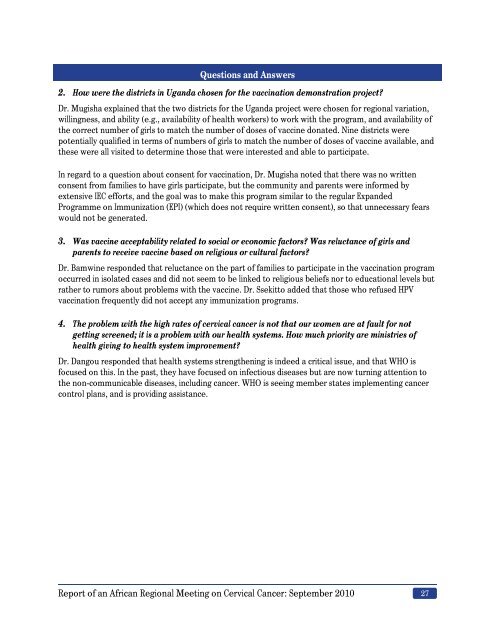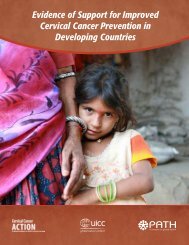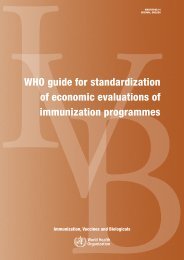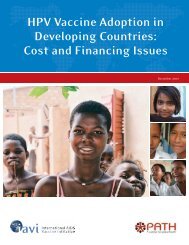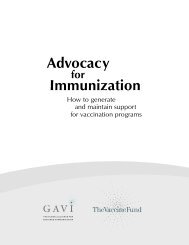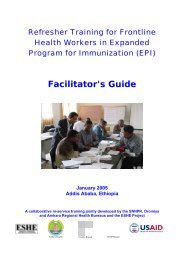Download file, English (1 MB PDF) - RHO
Download file, English (1 MB PDF) - RHO
Download file, English (1 MB PDF) - RHO
Create successful ePaper yourself
Turn your PDF publications into a flip-book with our unique Google optimized e-Paper software.
Questions and Answers<br />
2. How were the districts in Uganda chosen for the vaccination demonstration project?<br />
Dr. Mugisha explained that the two districts for the Uganda project were chosen for regional variation,<br />
willingness, and ability (e.g., availability of health workers) to work with the program, and availability of<br />
the correct number of girls to match the number of doses of vaccine donated. Nine districts were<br />
potentially qualified in terms of numbers of girls to match the number of doses of vaccine available, and<br />
these were all visited to determine those that were interested and able to participate.<br />
In regard to a question about consent for vaccination, Dr. Mugisha noted that there was no written<br />
consent from families to have girls participate, but the community and parents were informed by<br />
extensive IEC efforts, and the goal was to make this program similar to the regular Expanded<br />
Programme on Immunization (EPI) (which does not require written consent), so that unnecessary fears<br />
would not be generated.<br />
3. Was vaccine acceptability related to social or economic factors? Was reluctance of girls and<br />
parents to receive vaccine based on religious or cultural factors?<br />
Dr. Bamwine responded that reluctance on the part of families to participate in the vaccination program<br />
occurred in isolated cases and did not seem to be linked to religious beliefs nor to educational levels but<br />
rather to rumors about problems with the vaccine. Dr. Ssekitto added that those who refused HPV<br />
vaccination frequently did not accept any immunization programs.<br />
4. The problem with the high rates of cervical cancer is not that our women are at fault for not<br />
getting screened; it is a problem with our health systems. How much priority are ministries of<br />
health giving to health system improvement?<br />
Dr. Dangou responded that health systems strengthening is indeed a critical issue, and that WHO is<br />
focused on this. In the past, they have focused on infectious diseases but are now turning attention to<br />
the non-communicable diseases, including cancer. WHO is seeing member states implementing cancer<br />
control plans, and is providing assistance.<br />
Report of an African Regional Meeting on Cervical Cancer: September 2010 27


